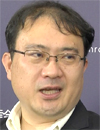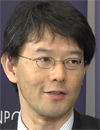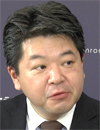With more and more people doubting the ability of democracy to provide a platform for solving the various problems our society faces, nations around the world are seeing a rise of populism, with politicians feeding on people's anxieties and discontent. As Japan faces an Upper House election, Japanese experts looked at how democracy is functioning today, and how voters at home and abroad should evaluate the efficacy of the system.
In a recent discussion on democracy, moderated by Yasushi Kudo, president of independent Japanese think tank The Genron NPO, Japanese experts started by analyzing the current state of democracy and the rise of populism around the world.
 Yu Uchiyama, an associate professor of Japanese politics and political theory at the University of Tokyo Graduate School of Arts and Sciences, said the rise of populism that depends on the general public's uncertainty of and resistance to the establishment is merely a phase in the development of democracy, and proof that citizen participation in politics has expanded. "But whether that is a good thing or a bad thing is a different matter," Uchiyama said.
Yu Uchiyama, an associate professor of Japanese politics and political theory at the University of Tokyo Graduate School of Arts and Sciences, said the rise of populism that depends on the general public's uncertainty of and resistance to the establishment is merely a phase in the development of democracy, and proof that citizen participation in politics has expanded. "But whether that is a good thing or a bad thing is a different matter," Uchiyama said.
Nationalism, such as in China, where things are conducted non-democratically, appears to be making progress as an alternative to democracy, but nationalism also creates discrepancies in the long term, and these discrepancies emerge after a time lag. "So in the long term, it appears that the democratic way of doing things seems to be the better option, but it's also true that democracy is ineffective in showing results in the short term," Uchiyama said.
 Takayoshi Uekami, a professor of political science and Japanese politics at Okayama University, said democracy has developed by combining the concepts of nation-state and welfare state to redistribute wealth, but with the globalization of the economy as well as human activity, nations today are unable to single-handedly resolve the various issues they face.
Takayoshi Uekami, a professor of political science and Japanese politics at Okayama University, said democracy has developed by combining the concepts of nation-state and welfare state to redistribute wealth, but with the globalization of the economy as well as human activity, nations today are unable to single-handedly resolve the various issues they face.
 Meanwhile, Toru Yoshida, a professor at Hokkaido University's Graduate School of Law, interpreted the current rise of populism as criticism that democracy is not functioning properly, and not as an outright denial of democracy. Ever since the so-called "Lehman shock," Europe in particular has seen unemployment increasing and a growing gap between the "haves" and "have-nots." This widening gap triggered further economic uncertainty even among the middle classes, which in turn caused a rise of populism, he said.
Meanwhile, Toru Yoshida, a professor at Hokkaido University's Graduate School of Law, interpreted the current rise of populism as criticism that democracy is not functioning properly, and not as an outright denial of democracy. Ever since the so-called "Lehman shock," Europe in particular has seen unemployment increasing and a growing gap between the "haves" and "have-nots." This widening gap triggered further economic uncertainty even among the middle classes, which in turn caused a rise of populism, he said.
Furthermore, as a long-term factor, Yoshida talked about what he calls a "liberal consensus" that has disseminated since the end of the Cold War, where even socialist governments began to compromise by accepting the market economy. A consensus that liberalism on an independent level and an individual's right to make decisions being approved at least on a cultural level caused the working class, which had until then been supporting the socialist governments, to be left behind, resulting in discontent toward existing political parties.
Yoshida said many of the problems nations today face, such as decreasing population and energy crisis, are not problems that can be solved within the four-year election time span, and said the "democratic cycle is too short" to resolve any of these issues. "But in the long history of things, democracy is about making decisions on your own, and citizens of any country will naturally want to make their own decisions about their own community. Hence I don't think this overall trend for democracy will ultimately change," Yoshida said.
Is democracy functioning in Japan?
Uchiyama noted that political parties today are not functioning as they should in maintaining democracy. With the ultimate goal of political parties to become the ruling party, they tend to promise short-term benefits to voters in order to win elections. And when one political party uses such a strategy, opposition parties are also forced to take similar action, and ultimately, none of the parties are able to come up with effective policies.
Uekami also pointed out the problem voters face making choices based on short-term benefits. "There are no easy solutions and voters themselves must recognize that there are no such free lunches available," Uekami said. Voters need to mature and make efforts to understand the different issues that society faces, "or else it will be like spitting against heaven," he said.
Meanwhile, Yoshida talked about the role of elections, and suggested that voters evaluate political parties on what they have actually accomplished as it was becoming increasingly difficult to get across their ideologies and effective policy manifestos to the electorate in this fast-changing, internationalized world. Voters would temporarily support a party, and have it take charge for a while. Then they evaluate it based on what the party achieves and decide on the next administration. Political power will shift depending on the results. "This style of election is probably the only way democracy will function effectively," Yoshida said.
Uchiyama added that voters need an alternative choice for this kind of scheme to function, but that choice is missing in Japanese politics today. At least during the days of the so-called "1955 system," where the ruling Liberal Democratic Party and the main opposition Socialist Party maintained political order through confrontation and compromises between each other, there were factions within the ruling LDP that competed against each other and served like a pseudo-regime change in government. "Today, there is no competition within the (ruling) party or between parties, and I feel that to be an extremely unhealthy situation," Uchiyama said.

Uekami added that voters and opposition parties, as part of the democratic framework, must also be able to present alternatives to the ruling party at all times and not only at election time. Yoshida said that if one believed democracy was not headed in the right direction, voters themselves need to take action by, for example, calling or writing to politicians.
"Ultimately, what's most important is that the political parties offer responsible policy choices and voters make responsible decisions. It all boils down to this," Uchiyama said.
Taking a hard look at democracy
The experts all agreed that voters and citizens needed to discuss how democracy should function in the modern world, as such efforts will lead to improving the system, particularly with 18-year-olds now eligible to vote in Japan. Uekami said that schools should create a culture of examining democracy while Yoshida said that it was important to improve self-evaluation skills in order to make democracy function.
On a more immediate note, Uekami suggested that Japanese voters take a hard look at what the current ruling party has accomplished and also at the opposition parties for not merely opposing everything, but whether they have realistic proposals in light of the changes that Japan faces, on issues ranging from national security to social welfare.
Meanwhile, Yoshida pointed out that an election is just one way of expressing the will of the people, and democracy stabilizes when there are other ways to express that will. Quoting Max Weber's words, "Politics is a strong and slow boring of hard boards. It takes both passion and perspective," Uchiyama said that voters should not be discouraged with politics but should persevere to improve the situation.


Post a comment